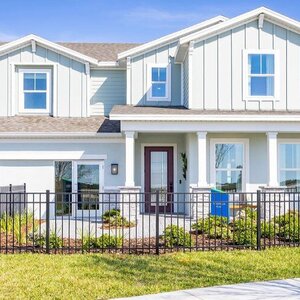The WPJ
THE WORLD PROPERTY JOURNALReal Estate Facts Not Fiction
Residential Real Estate News

Single Family Rents Rise 3 Percent Annually in August
Residential News » Atlanta Edition | By Monsef Rachid | October 15, 2019 8:01 AM ET
According to CoreLogic's latest Single-Family Rent Index (SFRI), which analyzes single-family rent price changes nationally and among 20 metropolitan areas, shows a national rent increase of 3% in August 2019.
Low rental home inventory, relative to demand, fuels the growth of single-family rent prices. The SFRI shows single-family rent prices have climbed between 2010 and 2019. However, overall year-over-year rent price increases have slowed since February 2016, when they peaked at 4%, and have stabilized over the last year with a monthly average of 3%.
August marked the 64th consecutive month in which low-end rentals propped up national rent growth. Rent prices among this tier, defined as properties with rent prices less than 75% of the regional median, increased 3.7% year over year in August 2019, down from a gain of 4.1% in August 2018. Meanwhile, high-end rentals, defined as properties with rent prices greater than 125% of a region's median rent, increased 2.7% in August 2019, up from a gain of 2.6% in August 2018.
Among the 20 metro areas shown in Table 1, and for the ninth consecutive month, Phoenix had the highest year-over-year increase in single-family rents in August 2019 at 6.6% (compared to August 2018). Las Vegas and Tucson, Arizona experienced the second- and third-highest rent gains in August at 5.8% and 5.3% respectively, while Miami saw the lowest rent increases of all analyzed metros at 1.5%.
Metro areas with limited new construction, low rental vacancies and strong local economies that attract new employees tend to have stronger rent growth. Phoenix experienced high year-over-year rent growth in August, driven by the annual employment growth of 2.7%. This is compared with the national employment growth average of 1.4%, according to data from the United States Bureau of Labor Statistics. Orlando, Florida also experienced an elevated annual employment growth of 4%, which played a role in its above-average, year-over-year rent increase of 3.7% in August.
"National rent increases have settled in around 3% over the past year, and the rate of increase for entry-level rentals has eased over the past six months," said Molly Boesel, principal economist at CoreLogic. "However, home-buying affordability remains a top concern across generations and is keeping many consumers in the rental market. If this trend continues, we may see another uptick in rent price growth in the coming year, particularly in urban areas where we're seeing increasing demand from millennials."
Low rental home inventory, relative to demand, fuels the growth of single-family rent prices. The SFRI shows single-family rent prices have climbed between 2010 and 2019. However, overall year-over-year rent price increases have slowed since February 2016, when they peaked at 4%, and have stabilized over the last year with a monthly average of 3%.
August marked the 64th consecutive month in which low-end rentals propped up national rent growth. Rent prices among this tier, defined as properties with rent prices less than 75% of the regional median, increased 3.7% year over year in August 2019, down from a gain of 4.1% in August 2018. Meanwhile, high-end rentals, defined as properties with rent prices greater than 125% of a region's median rent, increased 2.7% in August 2019, up from a gain of 2.6% in August 2018.
Among the 20 metro areas shown in Table 1, and for the ninth consecutive month, Phoenix had the highest year-over-year increase in single-family rents in August 2019 at 6.6% (compared to August 2018). Las Vegas and Tucson, Arizona experienced the second- and third-highest rent gains in August at 5.8% and 5.3% respectively, while Miami saw the lowest rent increases of all analyzed metros at 1.5%.
Metro areas with limited new construction, low rental vacancies and strong local economies that attract new employees tend to have stronger rent growth. Phoenix experienced high year-over-year rent growth in August, driven by the annual employment growth of 2.7%. This is compared with the national employment growth average of 1.4%, according to data from the United States Bureau of Labor Statistics. Orlando, Florida also experienced an elevated annual employment growth of 4%, which played a role in its above-average, year-over-year rent increase of 3.7% in August.
"National rent increases have settled in around 3% over the past year, and the rate of increase for entry-level rentals has eased over the past six months," said Molly Boesel, principal economist at CoreLogic. "However, home-buying affordability remains a top concern across generations and is keeping many consumers in the rental market. If this trend continues, we may see another uptick in rent price growth in the coming year, particularly in urban areas where we're seeing increasing demand from millennials."
Sign Up Free | The WPJ Weekly Newsletter
Relevant real estate news.
Actionable market intelligence.
Right to your inbox every week.
Real Estate Listings Showcase
Related News Stories
Residential Real Estate Headlines
- Las Vegas Area Home Prices Uptick 4.3 Percent Annually in March
- Single-Family Rent Growth in U.S. Trends Upward in 2025
- U.S. Mortgage Rates Tick Down Post Trump Tariffs Commencement
- President Trump's 'Liberation Day' Tariffs Potential Impact on the U.S. Housing and Mortgage Markets
- Baby Boomers Biggest Cohort of U.S. Home Buyers in 2025 as Millennials Decline
- U.S. Monthly Housing Payments Hit Record High in 2025
- U.S. Pending Home Sales Uptick in February
- Global Prime Residential Rent Slowdown Continued in Late 2024
- Ireland Home Price Inflation Hits 8 Year High in Early 2025
- Existing Home Sales in America Uptick in February
- Great Miami Area Residential Sales Decline 15 Percent Annually in February
- Mortgage Rates Uptick in Mid-March, Ending 9-Week Decline in U.S.
- World Property Ventures Builds the Future of Real Estate with New Funding Round
- U.S. Builder Sentiment Declines Amid Economic Uncertainty and Rising Costs
- Black Homeownership Rates in U.S. Enjoy Largest Annual Increase of All Racial Groups
- Wealthy Renters Are Taking Over More of the U.S. Rental Market
- If U.S. Congress Does Not Extend NFIP Soon, Thousands of Daily Home Closings Impacted
- U.S. Mortgage Applications Spike 11 Percent in Early March
- Greater Palm Beach Area Residential Sales Rise in Early 2025
- New Apartments in U.S. Are Leasing at Slowest Pace on Record
- U.S. Mortgage Rates Drop to 4 Month Low in March
- Overall U.S. Mortgage Delinquency Rates Dip in December
- New Tariffs on Canada, Mexico to Impact U.S. Homebuilder Input Costs
- Monaco's Property Market: A Tale of Two Cities
- U.S. Home Purchase Cancellations Surge, 1 in 7 Sales Getting Canceled
- U.S. Pending Home Sales Hit Historic Low in Early 2025
- Greater Miami Area Residential Sales Dip in January
- Governor DeSantis Supports Ending Property Taxes in Florida
- WPV Aims to Become the Berkshire Hathaway of Real Estate Tech
- U.S. Home Sales Slump Continues in January
- Average Americans Spend 38 Percent of Monthly Income on Mortgage Payments
- Switzerland's Safe-Haven Appeal Grows with World's Wealthy Homebuyers
- U.S. Builder Confidence Rapidly Declines in February
- Las Vegas Home Sales Rise 6.7 Percent Annually in January, Condo Sales Dip
- Homebuyer Demand in America Drops to 5-Year Low in Early 2025
- Ownership More Affordable Than Renting in Most U.S. Markets
- The World's First Global Listings Service Launches, Called a GLS
- Home Prices Continue to Rise in 89 Percent of U.S. Metros in Late 2024
- Global Luxury Residential Prices Showed Gradual Improvement in Late 2024
- U.S. Construction Hiring Rate Drops to Lowest Levels in 5 Years
Reader Poll
Marketplace Links
This website uses cookies to improve user experience. By using our website you consent in accordance with our Cookie Policy. Read More





